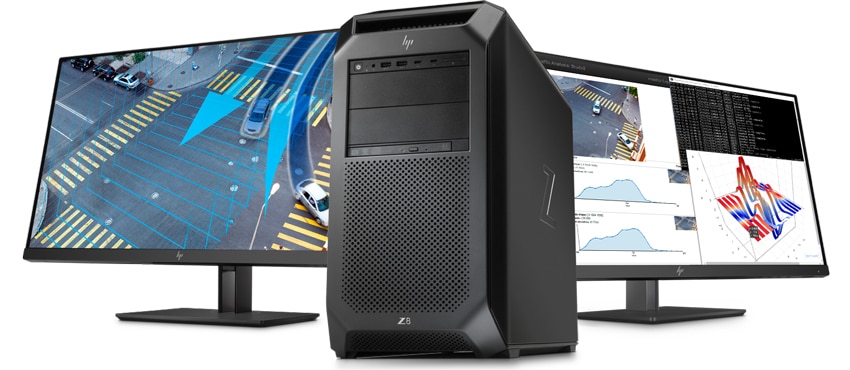 Today HP unveiled new workstations specifically built around machine learning (ML). The new ML platforms leverage the power of HP’s Z Workstations, including graphics technology and software tools, and uses them to optimize workflows in ML. Included in this announcement is the HP Z8, what it is referring to as the world’s most powerful workstation for ML development (based on power and hardware specs).
Today HP unveiled new workstations specifically built around machine learning (ML). The new ML platforms leverage the power of HP’s Z Workstations, including graphics technology and software tools, and uses them to optimize workflows in ML. Included in this announcement is the HP Z8, what it is referring to as the world’s most powerful workstation for ML development (based on power and hardware specs).
Today HP unveiled new workstations specifically built around machine learning (ML). The new ML platforms leverage the power of HP’s Z Workstations, including graphics technology and software tools, and uses them to optimize workflows in ML. Included in this announcement is the HP Z8, what it is referring to as the world’s most powerful workstation for ML development (based on power and hardware specs).

Machine Learning and other potential Artificial Intelligence (AI) technologies can come with tremendous benefits. ML can drastically reduce design times while simultaneously increasing performance, productivity, and quality. This is especially useful to areas such as facial identification, sentiment analysis, fraud detection, and predictive analytics where time is of the essence. To create these powerful ML algorithms and data sets, users will need equally powerful workstations at the edge.
People tend to think that complex models that need tons of data are done in the cloud. While this is true in many cases, the cost-effectiveness of this method goes down rapidly when performance is needed, thus enter the workstation. Aside from a cost advantage, developers will also have more control on a workstation, along with better security. However, most workstations don’t have quite the power needed for ML workloads. HP’s new Z Workstations provides state-of-the-art tools, such as HP curated software stacks, as well as support for NVIDIA GPU Cloud. The latest HP Z Workstations also offer high security. They are self-healing with hardware-enforced and manageable security.
Availability
The new ML solutions are available now as part of HP’s Device as a Service (DaaS) offering.
Sign up for the StorageReview newsletter
